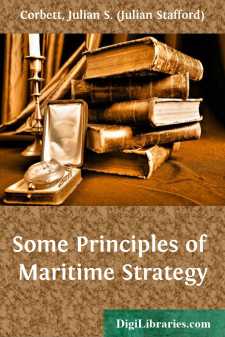Categories
- Antiques & Collectibles 13
- Architecture 36
- Art 48
- Bibles 22
- Biography & Autobiography 813
- Body, Mind & Spirit 142
- Business & Economics 28
- Children's Books 15
- Children's Fiction 12
- Computers 4
- Cooking 94
- Crafts & Hobbies 4
- Drama 346
- Education 46
- Family & Relationships 57
- Fiction 11828
- Games 19
- Gardening 17
- Health & Fitness 34
- History 1377
- House & Home 1
- Humor 147
- Juvenile Fiction 1873
- Juvenile Nonfiction 202
- Language Arts & Disciplines 88
- Law 16
- Literary Collections 686
- Literary Criticism 179
- Mathematics 13
- Medical 41
- Music 40
- Nature 179
- Non-Classifiable 1768
- Performing Arts 7
- Periodicals 1453
- Philosophy 64
- Photography 2
- Poetry 896
- Political Science 203
- Psychology 42
- Reference 154
- Religion 513
- Science 126
- Self-Help 84
- Social Science 81
- Sports & Recreation 34
- Study Aids 3
- Technology & Engineering 59
- Transportation 23
- Travel 463
- True Crime 29
Fighting Instructions, 1530-1816 Publications Of The Navy Records Society Vol. XXIX.
Description:
Excerpt
INTRODUCTORY
The following extract from the Espejo de Navegantes, or Seamen's Glass, of Alonso de Chaves serves to show the development which naval tactics had reached at the dawn of the sailing epoch. The treatise was apparently never published. It was discovered by Captain Fernandez Duro, the well-known historian of the Spanish navy, amongst the manuscripts in the library of the Academy of History at Madrid. The exact date of its production is not known; but Alonso de Chaves was one of a group of naval writers and experts who flourished at the court of the Emperor Charles V in the first half of the sixteenth century.[1] He was known to Hakluyt, who mentions him in connection with his own cherished idea of getting a lectureship in navigation established in London. 'And that it may appear,' he writes in dedicating the second edition of his Voyages to the lord admiral, 'that this is no vain fancy nor device of mine it may please your lordship to understand that the late Emperor Charles the Fifth … established not only a Pilot-Major for the examination of such as sought to take charge of ships in that voyage' (i.e. to the Indies), 'but also founded a notable lecture of the Art of Navigation which is read to this day in the Contractation House at Seville. The Readers of the Lecture have not only carefully taught and instructed the Spanish mariners by word of mouth, but also have published sundry exact and worthy treatises concerning marine causes for the direction and encouragement of posterity. The learned works of three of which Readers, namely of Alonso de Chaves, of Hieronymus de Chaves, and of Roderigo Zamorano, came long ago very happily to my hands, together with the straight and severe examining of all such Masters as desire to take charge for the West Indies.' Since therefore De Chaves was an official lecturer to the Contractation House, the Admiralty of the Indies, we may take it that he speaks with full authority of the current naval thought of the time. That he represented a somewhat advanced school seems clear from the pains he takes in his treatise to defend his opinions against the old idea which still prevailed, that only galleys and oared craft could be marshalled in regular order. 'Some may say,' he writes, 'that at sea it is not possible to order ships and tactics in this way, nor to arrange beforehand so nicely for coming to the attack or bringing succour just when wanted, and that therefore there is no need to labour an order of battle since order cannot be kept. To such I answer that the same objection binds the enemy, and that with equal arms he who has taken up the best formation and order will be victor, because it is not possible so to break up an order with wind and sea as that he who is more without order shall not be worse broken up and the sooner defeated. For ships at sea are as war-horses on land, since admitting they are not very nimble at turning at any pace, nevertheless a regular formation increases their power. Moreover, at sea, so long as there be no storm, there will be nothing to hinder the using of any of the orders with which we have dealt, and if there be a storm the same terror will strike the one side as the other; for the storm is enough for all to war with, and in fighting it they will have peace with one another.'
At first sight it would seem that De Chaves in this argument takes no account of superiority of seamanship—the factor which was destined to turn the scale against Spain upon the sea....




